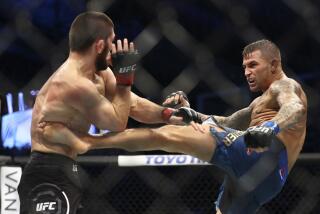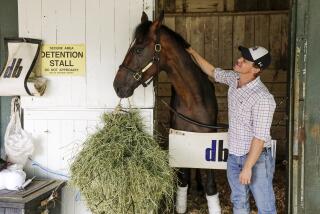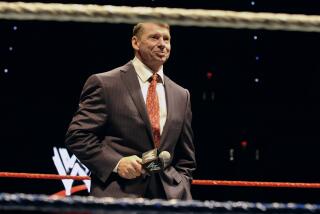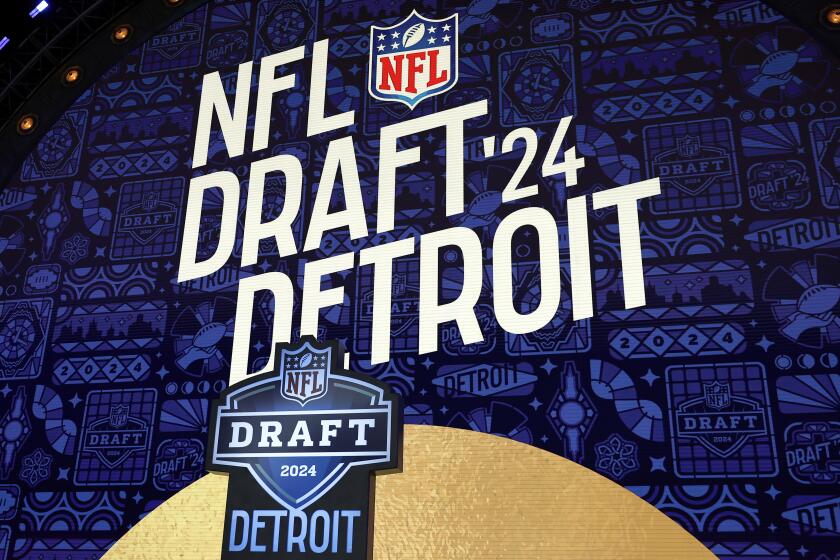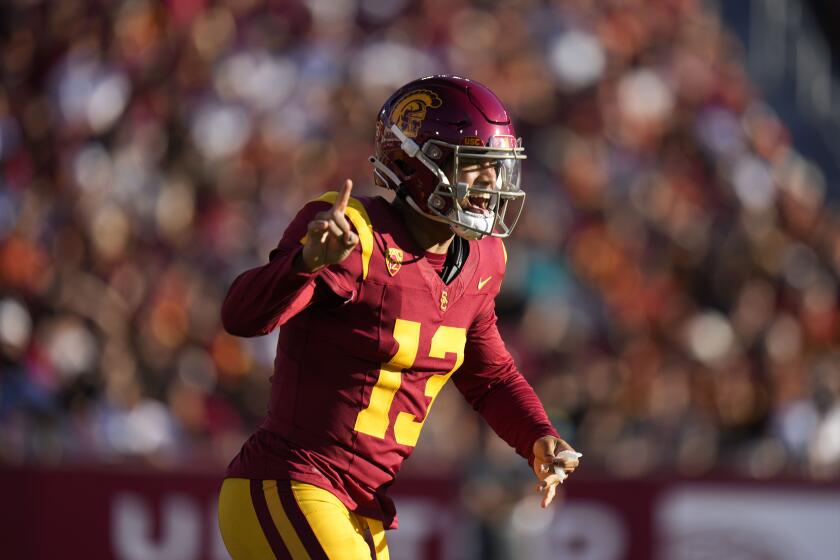UFC executive discusses Cung Le’s HGH testing fiasco
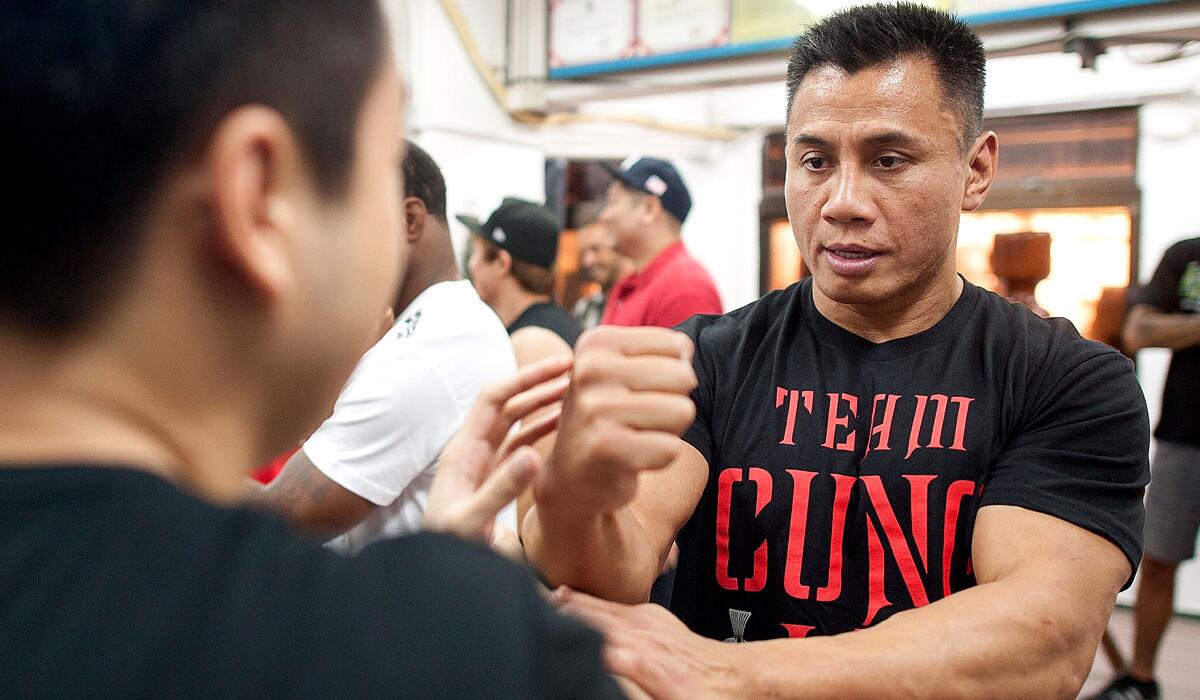
The Ultimate Fighting Championship’s bumbling of middleweight fighter Cung Le’s human growth hormone test in China has been an embarrassing misstep for the organization and the cleanup isn’t progressing to the fighter’s satisfaction.
In his first public comments since the UFC rescinded a one-year-long suspension it slapped Le with over a supposed elevated HGH test result earlier this month, Lawrence Epstein, the UFC’s senior executive vice president and chief operating officer, told the Los Angeles Times that overturning Le’s suspension is a sufficient apology to the fighter.
“I’m not going to sugarcoat this: We’re not happy with how this particular situation played out,” Epstein said. “Once we had information, we rescinded it. That’s appropriate under the circumstances. We said it all by rescinding the suspension. I feel like what we did is an adequate remedy.”
Le found out in the days before his Aug. 23 fight in Macao that his main-event opponent, England’s Michael Bisping, had seen a photo of a very muscular Le in training camp and requested complete drug testing. Le suffered a broken eye bone in the bout, and was cut on the face during a fourth-round technical knockout loss to Bisping.
The UFC hired a company to conduct the tests of all fighters on the card, Epstein said, and included additional blood tests for Le, Bisping and a few others.
The results were not sent to the World Anti-Doping Agency-accredited lab in China, however, and when testers in Hong Kong reported elevated HGH in Le’s system, the UFC disciplined the fighter.
Soon after, several critics, including former Olympic anti-doping chief Don Catlin, criticized the procedure and the lab as Le and his supporters argued that taking a blood sample immediately after heavy exertion and stress can produce higher levels of naturally occurring HGH.
Catlin said the result should be “ignored.”
In a press release Monday, the UFC then rescinded the suspension, but declined to reveal what medical experts were consulted, and Epstein declined in a Wednesday interview with The Times to point out who provided the advice.
“[The experts] all concluded that though the tests did show elevated levels of HGH, the test that was administered was not conclusive [to say] that those were not the result of exogenous HGH,” Epstein said.
So why weren’t these same experts consulted before Le was suspended?
“We were in China, using a lab where they analyze the blood locally, so we went to the only facility that was in the area that could do this,” Epstein said. “We told them what we wanted them to test for. They conducted the test. The test was done properly, but not done to conclusively prove the elevated levels were exogenous.
“There was nothing wrong with the test. It just wasn’t the right test.”
Le, reached Thursday by telephone, said he hasn’t had a conversation with UFC officials since the suspension was rescinded.
“They should have consulted those experts before they suspended me,” Le said.
When Epstein was asked if the UFC could have rooted this out before disciplining Le, he said, “What happened was, we got the test results back, explained to [Le’s] representative that these were above the normal levels, that we were going to suspend him.
“At that point, there was some discussion about whether or not these tests could properly find elevated levels of something that was taken versus something that naturally occurred. We did additional investigation and received additional information … so we rescinded the suspension.”
And perhaps irrevocably soiled a fighter’s reputation.
“I’m not happy about it, but we had to deal with the situations as they’re presented to us,” Epstein said. “ … We assumed the results were valid. It was one of those things. The wrong test was given.”
He said no one at the UFC has lost their job over the matter.
Epstein said since earlier this year he has led the UFC push to align with a company like the U.S. Anti-Doping Agency that can test fighters, with the ability to impose sanctions on those who test dirty.
Le’s case, said Epstein, is “another reason we’re looking at some sort of comprehensive testing protocol for all of our athletes conducted by a third party.
“We are not in the drug testing business. We are in the sports/media/fight promotion business. When we have athletic commissions or federations in place, they do it all. When we have situations like we have in Macao, we have to self-regulate. We do the best we can. Frankly, that’s what I think we did.”
Epstein said it could take another six months before the UFC can have the third-party testing in place, with state athletic commissions still needing to bless the arrangement that would allow the third party to discipline the athlete.
Le, meanwhile, still has two fights remaining on his UFC contract, but after this episode and the loss to Bisping, he isn’t sure where he stands.
“What I read in their press release in lifting my suspension, I don’t feel like that’s an apology at all,” Le said. “There’s no apology. I’m happy they lifted my suspension, but … if you’re wrong, man up.”
More to Read
Get our high school sports newsletter
Prep Rally is devoted to the SoCal high school sports experience, bringing you scores, stories and a behind-the-scenes look at what makes prep sports so popular.
You may occasionally receive promotional content from the Los Angeles Times.
